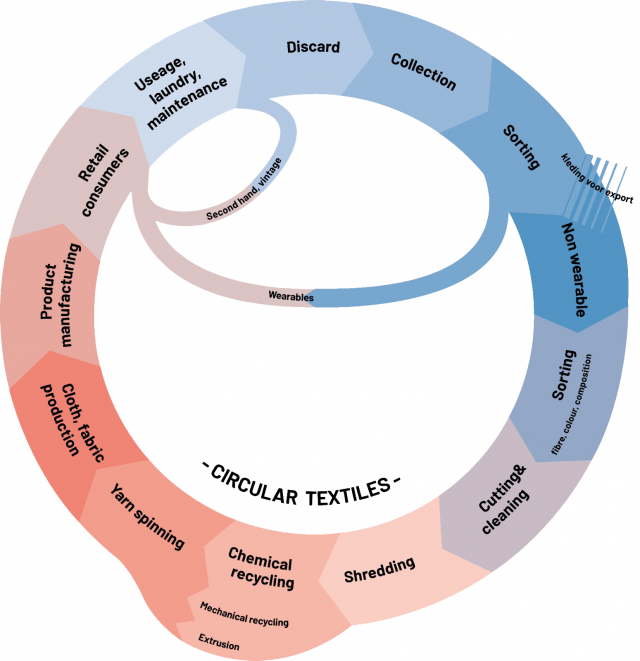A primer on textile recycling
REFLOW Amsterdam Circular Textiles Pilot
There is no denying that the environmental impact of the textile industry is enormous. From the pesticides and fertilizers used in cotton production to the fossil fuels used in fabric manufacturing, the textile industry’s current practices have dire consequences for our planet and our health. With the looming threat of climate change, we need to rethink the way we create and consume textiles more than ever.
The Amsterdam Reflow Pilot aims to address some of these issues through a grassroots initiative focusing on discarded consumer textiles. Each year, over 11,000 tonnes of textiles are improperly discarded and end up in landfills or incinerators, while only 2,500 tonnes end up in recycling facilities. By empowering Amsterdam citizens with new knowledge and skills, the pilot program aims to improve the way textiles are discarded, reused, and brought back into the material flow.
The purpose of this publication is to assemble knowledge and educate stakeholders at every stage of the textile industry’s cycle. Firstly, we aim to extend the life of textiles currently in use by encouraging people to reduce consumption and repair or reuse items. Secondly, when items must be discarded, we want to encourage people to do so correctly and responsibly. Finally, we want to educate and encourage citizens, designers, retailers, and manufacturers to think sustainably when creating or buying new products.
To enact real change and move towards a circular economy and a circular textile industry, we cannot act alone. We hope the knowledge collected here encourages and empowers you to do your part in moving towards a more sustainable world.
Laurie Skelton
References: Reflow #2: Garen spinnen uit oude kleren. (2020, September 10). Retrieved February 2021 from Reflow #2: Garen spinnen uit oude kleren.
Amsterdam Reflow rethinks the lifecycle of textiles with citizens and stakeholders. The Amsterdam Reflow Booklet addresses the environmental impact of the textile industry through a grassroots initiative focusing on discarded consumer textile.
Read full booklet in PDF here.
